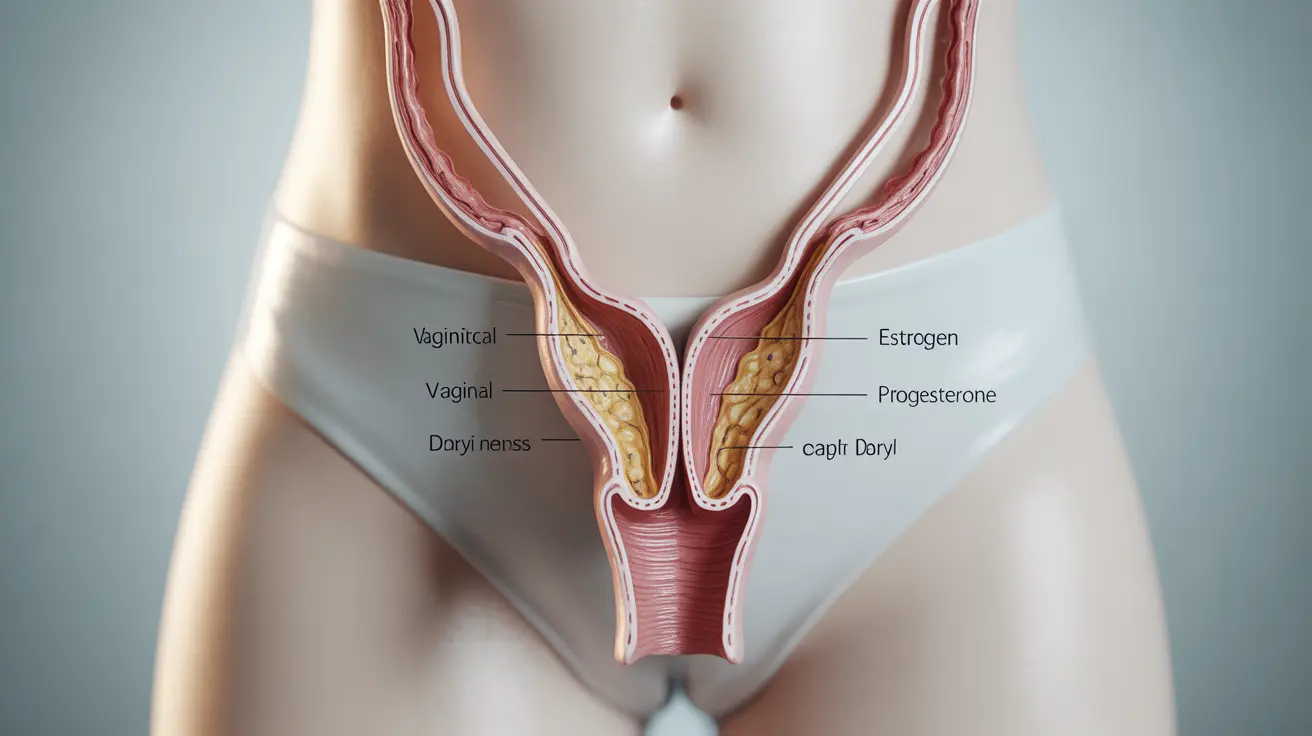Experiencing unexpected vaginal dryness can be both uncomfortable and concerning. While this condition is common, affecting women of various ages, sudden onset of vaginal dryness often signals changes in your body that deserve attention. Understanding the causes and available solutions can help you address this sensitive issue effectively and know when to seek medical guidance.
This comprehensive guide explores the various factors that can lead to sudden vaginal dryness, from hormonal changes to lifestyle influences, and provides practical solutions for managing this condition.
The Role of Hormones in Vaginal Dryness
Hormonal fluctuations are often the primary culprit behind sudden vaginal dryness. Estrogen, in particular, plays a crucial role in maintaining vaginal health and moisture levels. When estrogen levels decrease, whether due to natural life changes or medical conditions, it can significantly impact vaginal lubrication.
Common Hormonal Triggers
Several hormonal situations can lead to vaginal dryness:
- Perimenopause and menopause
- Postpartum period and breastfeeding
- Hormonal birth control methods
- Thyroid disorders
- Certain cancer treatments
Medication and Lifestyle Factors
Many common medications and daily habits can contribute to vaginal dryness:
- Antihistamines and allergy medications
- Some antidepressants
- Blood pressure medications
- Excessive alcohol consumption
- Smoking
- Insufficient hydration
- High-stress levels
Warning Signs and Symptoms
While occasional dryness might be normal, certain symptoms warrant medical attention:
- Persistent discomfort or burning sensation
- Pain during intercourse
- Recurring vaginal infections
- Unusual discharge
- Bleeding outside of menstruation
- Intense itching or irritation
Treatment Options and Home Remedies
Medical Solutions
Several medical treatments can help address vaginal dryness:
- Prescription hormone therapy
- Vaginal moisturizers
- Water-based lubricants
- Estrogen creams or rings
- Oral medications (in some cases)
Natural Approaches
Consider these lifestyle modifications to help improve vaginal health:
- Staying well-hydrated
- Maintaining a balanced diet rich in omega-3 fatty acids
- Regular exercise to promote healthy circulation
- Avoiding harsh soaps and irritants
- Using cotton underwear and breathable fabrics
When to Consult a Healthcare Provider
Don't hesitate to seek medical advice if you experience:
- Symptoms that persist for more than a few weeks
- Severe discomfort affecting daily activities
- Signs of infection
- Unusual bleeding
- Pain during urination or intercourse
Frequently Asked Questions
What are the common reasons for sudden vaginal dryness and how do hormones play a role? Hormonal changes, particularly fluctuations in estrogen levels, are the most common cause of sudden vaginal dryness. This can occur during menopause, after childbirth, while breastfeeding, or due to certain medications and medical treatments that affect hormone levels.
Can medications or lifestyle habits cause me to suddenly feel dry down there? Yes, several medications and lifestyle factors can cause vaginal dryness, including antihistamines, antidepressants, smoking, excessive alcohol consumption, and dehydration. Stress and anxiety can also contribute to this condition.
What symptoms should make me see a doctor about vaginal dryness? Seek medical attention if you experience persistent discomfort, pain during intercourse, recurring infections, unusual discharge, unexpected bleeding, or if the dryness significantly impacts your quality of life.
How can I safely relieve vaginal dryness at home and what products should I use? Safe relief options include water-based lubricants, vaginal moisturizers, staying hydrated, and avoiding irritating products. Choose products specifically designed for vaginal use and avoid oils or petroleum-based products.
When is vaginal dryness a sign of menopause or another medical condition needing treatment? Vaginal dryness accompanied by other symptoms like hot flashes, irregular periods, or night sweats may indicate menopause. If you experience sudden dryness along with unusual discharge, bleeding, or pain, it could signal an underlying condition requiring medical evaluation.




